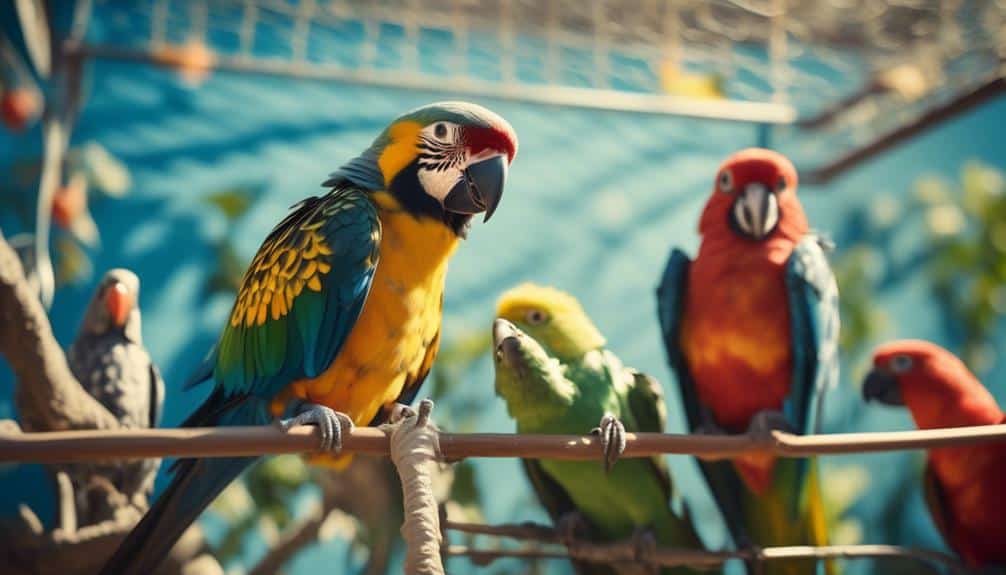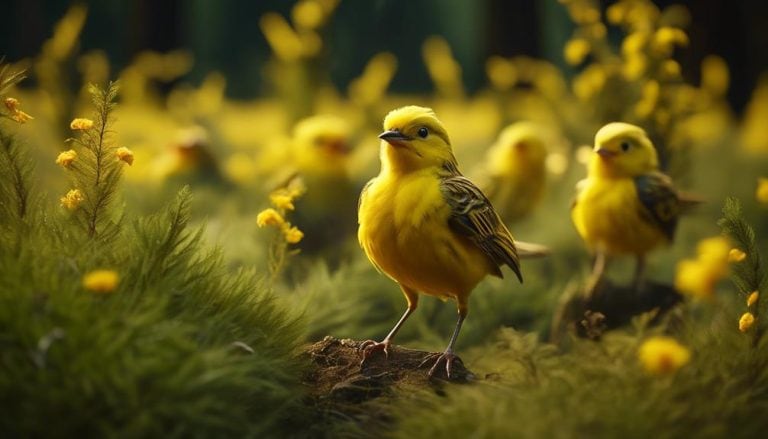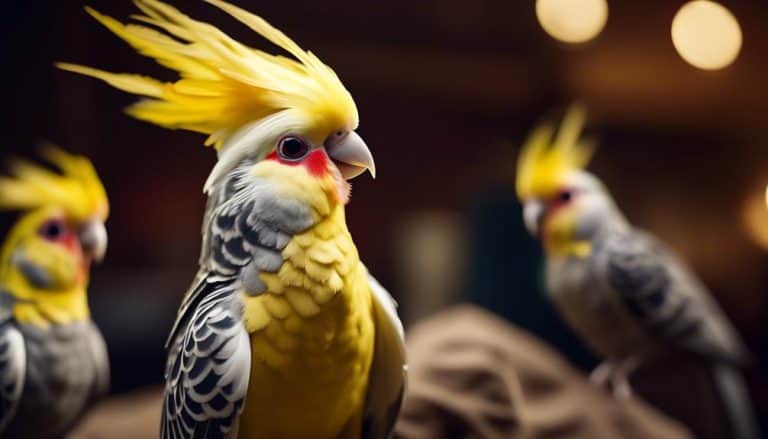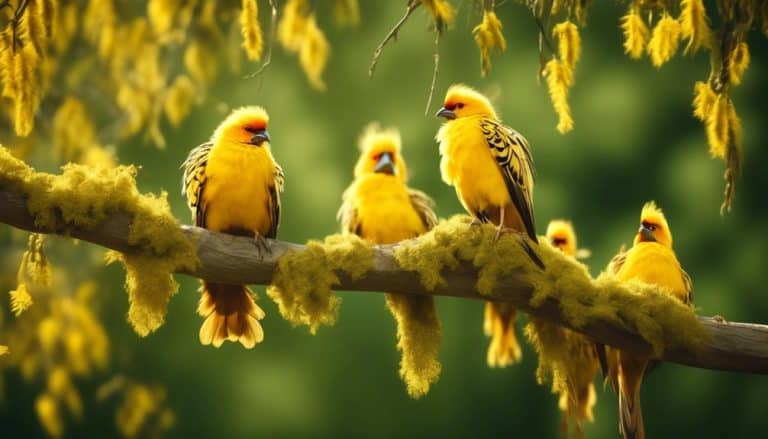As a curious Californian, I've often wondered what birds are legal to own in the Golden State. California is known for its diverse wildlife, but when it comes to feathered friends, are there any restrictions or guidelines in place?
Well, let me tell you, the rules and regulations surrounding bird ownership in California can be quite intriguing. From native species to exotic birds, and even endangered species, there's a lot to uncover.
So, let's dive into the fascinating world of bird ownership in California and find out exactly what our fine feathered friends are allowed to be.
State Laws on Bird Ownership
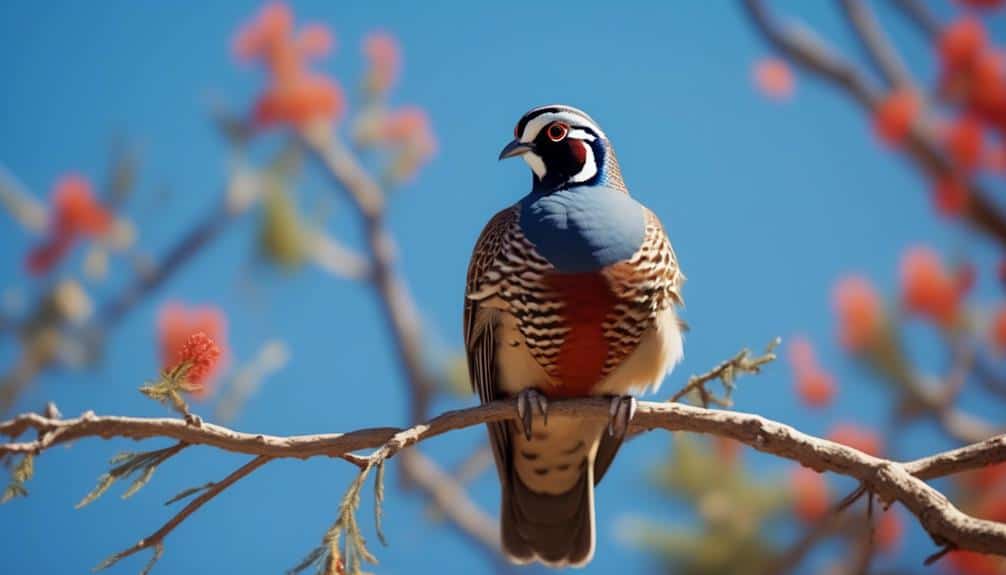
In California, the laws regarding bird ownership are comprehensive and strictly enforced. Bird ownership laws in California aim to protect both the well-being of the birds themselves and the safety of the public. These laws outline the types of birds that are allowed to be owned as pets and those that are prohibited.
Under California law, there are specific bird species that are prohibited from being owned as pets. These prohibited species include birds that are considered to pose a threat to native wildlife, endangered species, and birds that are known to be aggressive or dangerous. Examples of prohibited bird species in California include the red-crowned parrot and the monk parakeet.
It is important for bird owners in California to be aware of these laws and regulations to avoid any legal issues. Violation of these bird ownership laws can result in fines, confiscation of the bird, or even criminal charges in severe cases.
To ensure compliance with the law, it's recommended that prospective bird owners consult with local authorities or seek legal advice to determine which bird species are legal to own as pets in their specific area within California. By understanding and adhering to these bird ownership laws, we can contribute to the protection and preservation of bird species in California.
Native Birds of California

Now, let's explore the diverse array of native bird species that grace the skies of California, showcasing the rich biodiversity this state has to offer.
California is home to numerous birdwatching hotspots, attracting both amateur and experienced bird enthusiasts from around the world. The state's unique geographical features, including its coastline, mountains, deserts, and forests, provide a variety of habitats that support a wide range of bird species.
One of the most fascinating aspects of birdwatching in California is the bird migration patterns. Many bird species travel long distances, using California as a stopover during their annual migration. The Pacific Flyway, a major bird migration route, runs along the western coast of North America and passes through California. This migration route attracts millions of birds each year, including waterfowl, shorebirds, and songbirds.
Some popular birdwatching hotspots in California include the Salton Sea, where thousands of waterfowl gather during the winter months, and the Point Reyes National Seashore, known for its diverse bird species and stunning coastal scenery.
Other notable locations include the Sierra Nevada Mountains, where birdwatchers can spot species such as the California Condor and the Mountain Bluebird, and the Mojave Desert, home to unique desert bird species like the Greater Roadrunner and the LeConte's Thrasher.
Exotic Birds Allowed in California
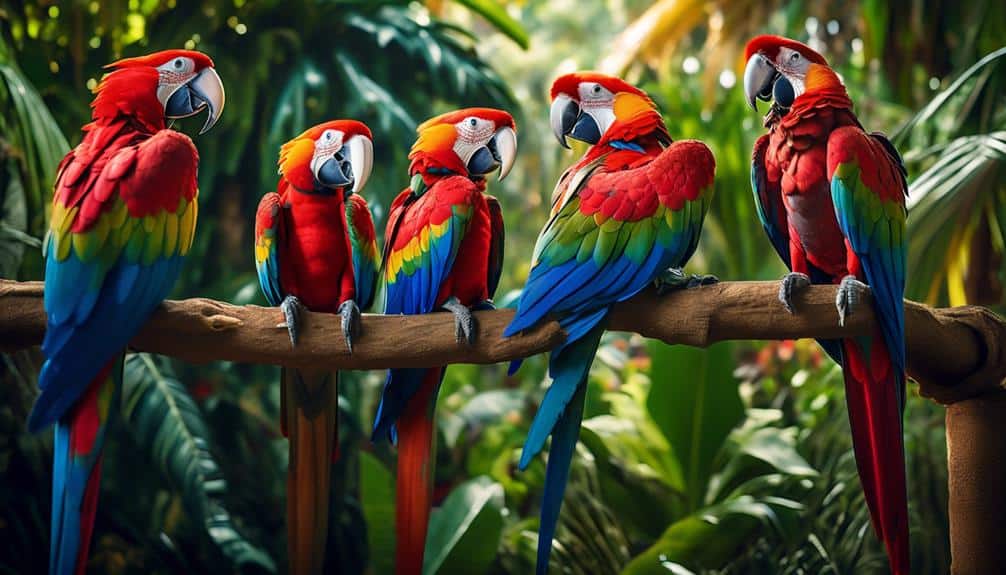
Exotic bird ownership in California is regulated by strict laws and regulations to ensure the protection of both the birds and the environment. The state has implemented measures to control the importation of exotic birds and to regulate the trade of these species within its borders. These regulations aim to prevent the introduction of non-native species that may pose a threat to native wildlife and ecosystems.
In California, exotic bird imports are subject to rigorous scrutiny. The California Department of Fish and Wildlife (CDFW) requires individuals or businesses importing exotic birds to obtain the necessary permits and licenses. These permits ensure that the birds being imported are legally obtained and meet specific health and safety standards.
The state also enforces strict exotic bird trade regulations. The CDFW monitors the sale and possession of exotic birds, requiring sellers to have the appropriate licenses and permits. This helps prevent illegal wildlife trafficking and ensures that exotic birds are obtained from legal and ethical sources.
To provide a clearer understanding of the regulations surrounding exotic bird ownership in California, here is a table outlining the key requirements:
| Regulation | Description |
|---|---|
| Importation Permits | Required for individuals or businesses importing exotic birds into California. |
| Possession Licenses | Necessary for individuals who wish to possess exotic birds within the state. |
| Health and Safety Standards | Ensures that imported birds meet specific health and safety requirements. |
| Sales and Trade Regulations | Regulates the sale and possession of exotic birds, requiring sellers to have the appropriate licenses and permits. |
Endangered Birds and Conservation Efforts

I have been closely studying the plight of endangered bird species and the conservation efforts being implemented to protect these species. It's crucial that we take action to protect these unique creatures and ensure their survival for future generations. Here are some key points to consider:
- Conservation organizations: Various organizations such as the Audubon Society, BirdLife International, and the National Audubon Society are actively working towards the conservation of endangered bird species. They conduct research, habitat restoration, and public outreach programs to raise awareness and promote conservation efforts.
- Endangered bird species: There are several bird species that are currently facing the threat of extinction. Some notable examples include the California Condor, the California Least Tern, and the Western Snowy Plover. These species are at risk due to habitat loss, climate change, pollution, and other human activities.
- Habitat conservation: Protecting and restoring the habitats of endangered bird species is crucial for their survival. Conservation organizations work to preserve and enhance crucial habitats such as wetlands, forests, and coastal areas. These efforts help provide nesting sites, food sources, and safe migration routes for these birds.
- Breeding and reintroduction programs: In order to increase the population of endangered bird species, conservation organizations often implement breeding and reintroduction programs. These programs involve captive breeding and releasing birds into suitable habitats to bolster their numbers and genetic diversity.
- Collaborative efforts: Conservation efforts for endangered bird species often involve collaboration between government agencies, non-profit organizations, researchers, and local communities. By working together, these stakeholders can pool resources, share knowledge, and develop effective conservation strategies.
It is vital that we continue to support and contribute to these conservation efforts to ensure the survival of endangered bird species and maintain the ecological balance of our ecosystems.
Regulations for Bird Breeders and Sellers
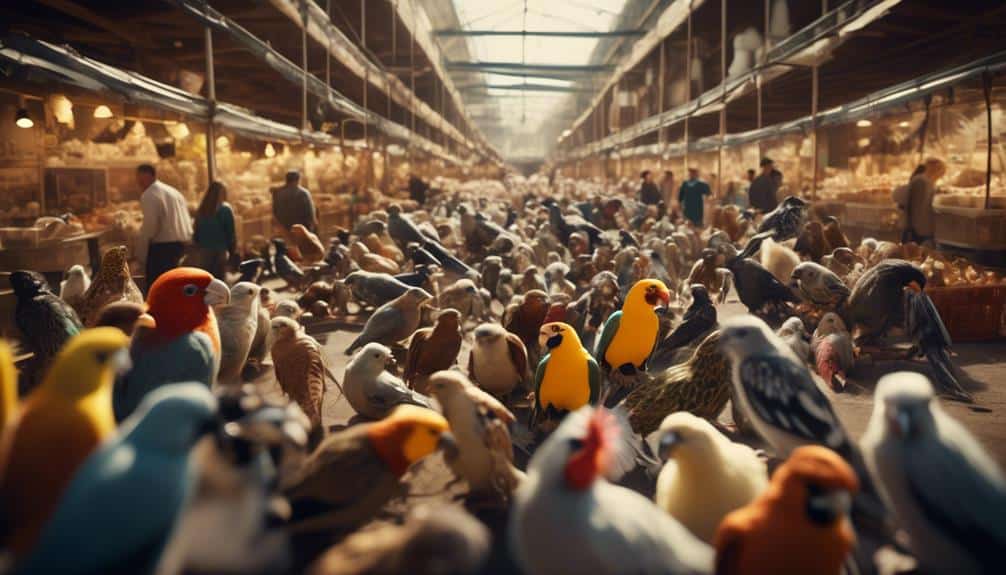
Regulations for bird breeders and sellers are essential for ensuring responsible and ethical practices in the aviculture industry. These regulations aim to protect the welfare of birds, prevent the illegal trade of endangered species, and maintain the sustainability of bird populations.
In California, there are specific laws and guidelines governing bird breeding and selling activities. Bird breeding regulations in California require breeders to obtain permits and follow certain standards to ensure the well-being of the birds. These standards may include providing adequate housing, nutrition, and veterinary care for the birds. Breeders may also be required to keep records of their breeding activities, including the number of birds bred and sold.
Bird selling restrictions in California are in place to prevent the illegal trade of endangered species and protect native bird populations. It's important for sellers to be aware of these restrictions to avoid legal consequences. Some species may be entirely prohibited from being sold, while others may require special permits or licenses. It's crucial for sellers to verify the legality of the birds they're selling and to only engage in legal and ethical practices.
Permits and Licenses for Bird Ownership
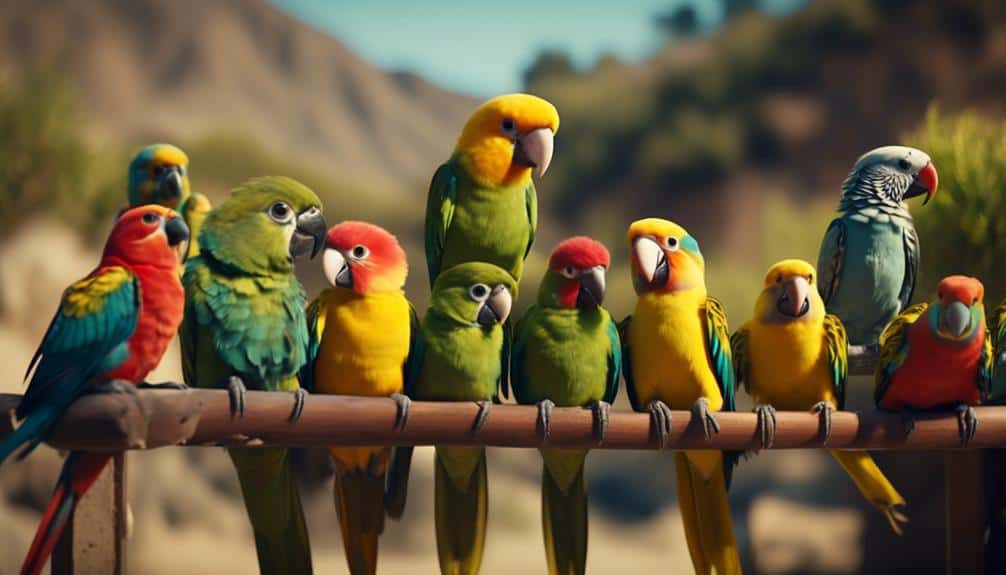
To legally own birds in California, individuals must obtain the necessary permits and licenses. The state has put in place specific requirements to ensure the responsible and ethical ownership of birds. Here are some key points to consider:
- Bird ownership requirements:
- Individuals must apply for a permit from the California Department of Fish and Wildlife (CDFW) to legally possess certain bird species.
- The permits are categorized based on the purpose of ownership, including scientific research, education, rehabilitation, or personal use.
- Applicants must demonstrate their knowledge and experience in avian care and provide appropriate housing and facilities for the birds.
- The CDFW may conduct inspections of the premises to ensure compliance with regulations.
- It's illegal to possess migratory birds without a federal permit issued by the U.S. Fish and Wildlife Service.
Avian care guidelines:
- Bird owners must provide proper nutrition, housing, and veterinary care to ensure the health and well-being of their birds.
- Adequate space, perches, and environmental enrichment should be provided to allow for natural behaviors.
- Regular vet check-ups, vaccinations, and parasite control are essential for maintaining the bird's health.
- Birds should be fed a balanced diet consisting of fresh fruits, vegetables, seeds, and pellets.
- Owners should also be aware of potential zoonotic diseases and take necessary precautions to prevent transmission.
Frequently Asked Questions
Can I Keep a Pet Parrot in California if It Is Not Native to the State?
Yes, you can keep a pet parrot in California, even if it is not native to the state. However, there are regulations on pet ownership in California, including keeping exotic birds.
What Are the Penalties for Owning a Bird Without the Necessary Permits and Licenses in California?
If caught owning a bird without the required permits and licenses in California, the consequences can be severe. Penalties may include fines, confiscation of the bird, and even criminal charges. It's important to follow the law to avoid these illegal bird ownership consequences.
Are There Any Specific Restrictions on Owning Birds of Prey in California?
When it comes to owning birds of prey in California, there are specific restrictions in place. These regulations aim to protect both the birds and the environment. Additionally, there are exceptions for owning non-native pet parrots in California.
What Is the Process for Obtaining a Permit to Breed and Sell Birds in California?
Obtaining a permit to breed and sell birds in California involves following the regulations set by the state. The permit application process requires detailed information about the breeding facilities and adherence to specific guidelines to ensure the welfare of the birds.
Can I Legally Keep a Pet Flamingo in California?
Keeping exotic pets in California requires knowledge of the legal requirements. Although I am not aware of the specific regulations concerning pet flamingos, it is crucial to research and consult with local authorities to ensure compliance.
Conclusion
In conclusion, owning birds in California requires adherence to state laws, regulations, and permits. While native birds and certain exotic species are allowed, it's crucial to prioritize the conservation efforts of endangered bird species.
By responsibly obtaining permits and licenses, bird owners can contribute to the preservation of these magnificent creatures. Just as a delicate bird soars through the sky, our actions can lift the burden of their endangered status and ensure a harmonious coexistence with nature.

